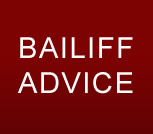This Local Government Ombudsman decision is a vitally important one as it addresses a number of different questions regarding bailiff enforcement when dealing with a vulnerable person such as;
- Whether Enforcement fees can be charged to a vulnerable person
- Whether an Enforcement Agent can decide vulnerability
- Whether a Local Authority should deduct bailiff fees from direct payments
- Whether a Local Authority should recall an account in cases of vulnerability.
A short analysis of the decision is below. The full decision can be viewed on the Local Government Ombudsman’s website here.
The Complaint
- The complainant (Mr J) says the Council did not take his vulnerability into account when refusing to recall his debt from the bailiffs.
- He would like the Council to take the liability order back from the enforcement agents and refund him the bailiff fees he has paid.
- Mr J claimed that bailiffs do not have discretionary powers to decide whether a person is vulnerable for the purpose of civil enforcement.
- Mr J says that the Council were wrong to pass some of the payments he made direct to it, to the bailiff.
- He says that by him paying the Council the council tax outstanding, he had cleared the debt and so the bailiff fees are not enforceable.
The Background
The council had obtained a Liability Order against Mr J to recover council tax arrears. The Liability Order had been passed to a firm of bailiffs. Mr J contacted the bailiffs stating that he was in receipt of benefits and offered to pay the debt at £10 per month. In response, the enforcement agency indicated that they would consider a payment proposal of £20 per month but before doing so, they wished to see evidence of his benefits and a completed statement of income and expenditure.
Mr J then contacted the Council to say he was getting a letter from his GP about his medical condition. He said he felt he was a vulnerable debtor and asked the Council to accept payments of £25 per month. The Council asked Mr J to contact its bailiffs as they were the ones dealing with the debt.
A third party contacted the Council, saying they were helping Mr J and would be sending a financial statement and an offer. In view of this the Council asked the bailiffs to hold action for 28 days. Neither the council nor the bailiffs heard anything further. So the bailiffs visited Mr J’s home.
Mr J said he would call the bailiffs to make an arrangement, but he did not. The third party then contacted the bailiffs with a financial statement and an increased payment proposal of £40 per month.
A week later Mr J contacted the Council. He provided a copy of a letter from his GP. He offered a reduced payment proposal of £20 per month. The Council agreed to accept an initial payment of £40 followed by fortnightly payments of £20.
Despite the account being with the bailiff company, Mr J made his payments to the council direct. The council deducted bailiff fees from the direct payments.
The Local Government Ombudsman’s decision
As Mr J’s complaint concerned a number of very important subjects relating to bailiff enforcement against a vulnerable person, we have itemised the decision under different headings.
Does a bailiff have discretionary power to decide whether a person is vulnerable?
The LGO disagreed with this part of Mr J’s complaint. They refer in Paragraph 14 of their decision to the National Standards for Enforcement Agents and in particular; to Paragraph 76 which states that: “Enforcement agents should be aware that vulnerability may not be immediately obvious”. The LGO are of the opinion that this sentence implies that a bailiff does have a discretionary power to decide whether a person in vulnerable.
Should a local authority recall a debt from bailiffs if a person is vulnerable?
The LGO confirmed in Para 13 that although there is no definition of ‘vulnerable’ in the National Standards, the law and guidance do not say that debts may not be recovered from vulnerable debtors but that cases, once identified, should be handled with particular care.
In Para 16 they state that once the evidence requested had been considered and a repayment arrangement agreed, that there was no reason for the Council to recall the debt from the bailiffs.
If a payment is made direct to the council, is the council wrong to pass some of the payment to bailiffs?
The LGO stated in Para 19 that the council was following the law by passing the bailiffs a proportion of these payments to clear the bailiff fees. They referred to (Paragraph 13 of The Taking Control of Goods (Fees) Regulations 2014) which says that if a payment is made that is less than the total debt and fees outstanding that the Compliance Fee should be deducted first and the balance split pro rata between the debt and the fees.
They concludes by stating that paying the Council directly does not mean the council tax debt is clear as the Regulations make clear that any balance is made up of both the debt and the bailiff fees.
Final Decision:
The LGO would not investigate Mr J’s complaint as they had not seen sufficient evidence of fault in the Council’s action.
Commentary from Bailiff Advice
If you are vulnerable and have a query about a letter or a visit that you have received from a bailiff, you can email a question to Bailiff Advice in confidence using our online Enquiry Form. Alternatively, you can contact our free helpline. Details are on our Contact page.
